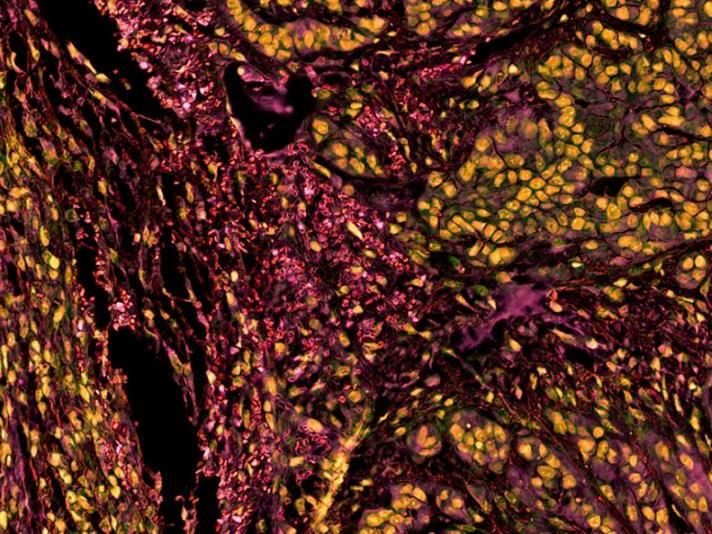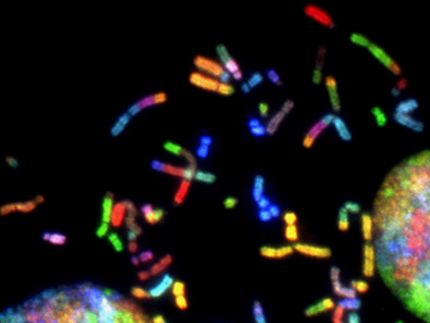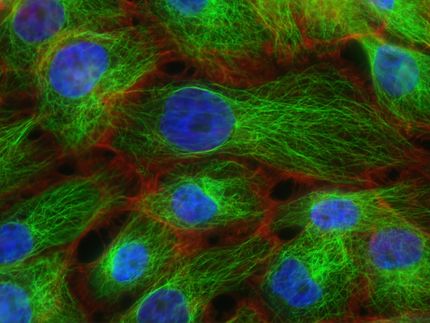New treatment approach uses killer cells to treat deadly brain tumors
Development of a promising new technology
Glioblastomas are the most common malignant brain tumors in adults. Treatment options are extremely limited and usually not effective, leading to death for most patients within 12-18 months of diagnosis.

This image shows NK cells killing tumor cells. A Purdue University cancer innovator and his team have developed a promising new approach to treating deadly brain tumors.
Purdue University/Sandro Matosevic
This is the type of cancer that claimed the lives of former U.S. Sens. John McCain and Ted Kennedy.
Now, a Purdue University cancer innovator and his team have developed a promising new approach to treating these tumors using a type of immune cell called the natural killer (NK) cell. The team genetically modifies the NK cells to more specifically target and kill cancer cells.
The V Foundation for Cancer Research and the Walther Cancer Foundation, in collaboration with Indiana University School of Medicine, funded part of this work.
"Multifunctionally engineering these cells is a potentially transformative way to enable the improved treatment of this disease," said Sandro Matosevic, an assistant professor in Purdue's College of Pharmacy. "Our solution is the first multifunctional, responsive immunotherapy for GBM (glioblastoma multiforme) based on engineered natural killer cells. By targeting multiple mechanisms at the same time, we severely limit the ability of GBM to avoid treatment."
The challenge with developing therapies for GBM is that the disease is highly immunosuppressive. It uses multiple mechanisms to evade recognition by the immune system, and many therapies developed against it are unsuccessful because GBM is both resistant to treatment and highly heterogeneous.
GBM is the most aggressive brain tumor. Despite multiple intensive treatment options - surgery, chemotherapy and radiotherapy - very few patients with GBM survive beyond 15 months, and none are cured. This is because most drugs act on a single pathway, while GBM uses a highly complex network of immunosuppressive mechanisms to promote resistance to treatment and evade immune recognition.
"Not only is cell-based immunotherapy a highly unique and promising treatment approach, but natural killer cells have been shown to be able to kill GBM with high efficiency. They are also considered safer than other cell-based therapies such as T cells. In addition, it has been shown that clinically, patients benefit from a higher presence of NK cells in the tumor microenvironment," Matosevic said.
The innovators are working with the Purdue Research Foundation Office of Technology Commercialization, which seeks to license this patent-pending technology. The office is now housed in the Convergence Center for Innovation and Collaboration in Discovery Park District, adjacent to the Purdue campus.
The researchers are looking for partners to continue developing their technology.
This technology involving GBM is the latest innovation to come out of the Matosevic Lab and is among several recent innovations from Purdue scientists and the Purdue University Center for Cancer Research.




















































